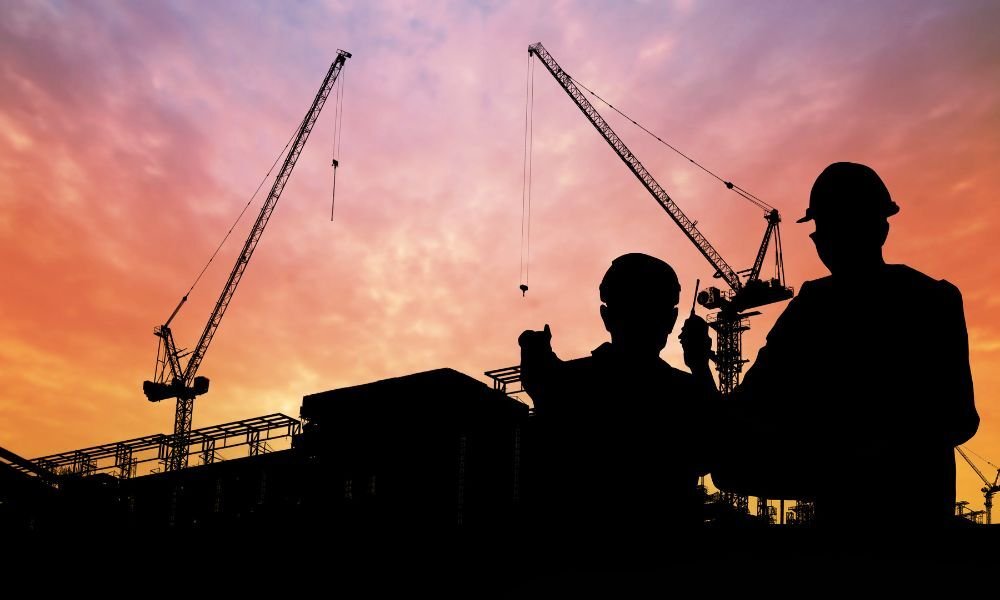How Do Construction Companies Work?
Construction companies are an integral part of our society, responsible for building and maintaining the infrastructure that we all rely on. From roads and bridges to buildings and homes, construction companies play a critical role in shaping our communities. In this article, we’ll take a closer look at how construction companies work, including their key roles and responsibilities, the construction process, and the challenges they face.
Definition of Construction Companies
Construction companies are businesses that specialize in building or renovating structures, including homes, commercial buildings, and infrastructure projects like roads and bridges. These companies are typically staffed by architects, engineers, project managers, and skilled tradespeople, such as carpenters, electricians, and plumbers.
Construction companies are vital players in the development and realization of various infrastructural projects. These companies are responsible for executing construction projects, which may include building new structures, renovating existing ones, or engaging in civil engineering works. The process typically starts with an initial consultation, where the client outlines their requirements and budget constraints. Once a project is agreed upon, the construction company will create a detailed plan, including blueprints and timelines. They then procure the necessary materials, machinery, and skilled labor to carry out the project efficiently and safely. During the construction phase, the company oversees the entire process, coordinating activities, managing subcontractors, and ensuring compliance with regulations and safety standards. Upon completion, the construction company hands over the finished project to the client and may provide ongoing maintenance services if required. Successful construction companies combine expertise, organization, and teamwork to bring complex projects to fruition, contributing significantly to the growth and development of communities and industries.
Importance of Construction Companies in Society
Construction companies are essential to the growth and development of our communities. They build the homes and offices where we work and live, the roads and highways we travel on, and the schools and hospitals that serve our needs. Without construction companies, our cities and towns would not be able to function.
Overview of the Article’s Content
In this article, we’ll explore how construction companies work, including the types of construction companies, the key roles and responsibilities of construction professionals, and the steps involved in the construction process. We’ll also look at some of the challenges faced by construction companies, including weather conditions, labor shortages, regulations, and safety risks.
Types of Construction Companies
Construction companies can be classified into different types based on the types of projects they specialize in. Here are the three main types of construction companies:
- Residential Construction Companies
Residential construction companies specialize in building or renovating homes, apartments, and other residential structures. These companies typically work with homeowners, real estate developers, or contractors who are building new homes or renovating existing ones.
- Commercial Construction Companies
Commercial construction companies focus on building or renovating commercial spaces, such as offices, stores, and warehouses. These companies often work with business owners or commercial property developers to design and construct spaces that meet their specific needs.
- Industrial Construction Companies
Industrial construction companies specialize in building large-scale industrial facilities, such as factories, power plants, and refineries. These companies work on complex projects that require specialized expertise in areas like engineering, safety, and environmental compliance.
Key Roles in Construction Companies
Construction companies employ a wide range of professionals with different roles and responsibilities. Here are some of the key roles in construction companies:
A. Project Manager
The project manager is responsible for overseeing the entire construction project, from planning and design to completion. They work closely with clients, architects, engineers, and other professionals to ensure the project is completed on time, within budget, and to the client’s satisfaction.
B. Site Supervisor
The site supervisor is responsible for managing the construction crew and ensuring that work is completed safely and efficiently. They oversee day-to-day operations on the construction site, including scheduling, equipment management, and quality control.
C. Architect
The architect is responsible for designing the building or structure, taking into account the client’s needs and preferences, as well as safety and environmental considerations. They work with the project manager, engineers, and other professionals to ensure that the design is structurally sound and meets all safety standards.
D. Engineer
The engineer is responsible for ensuring that the building or structure is designed and constructed to meet all safety and environmental standards. They work with the architect and project manager to ensure that the design is feasible and that the construction process follows all necessary regulations.
Steps in the Construction Process
The construction process can be complex and involves several steps to ensure that the final product meets the client’s requirements and complies with safety standards. Here are the steps involved in the construction process:
A. Design and Planning
The first step in the construction process is to design and plan the project. This involves collaborating with the client, architects, and engineers to develop a blueprint of the project that meets the client’s requirements and complies with safety standards.
B. Site Preparation
The site preparation involves clearing the construction site of any existing structures, vegetation, and debris. The site is then leveled and graded to ensure that it is suitable for the construction of the building or structure.
C. Foundation Construction
The foundation is the base of the building or structure and is crucial for its stability. The foundation is constructed by pouring concrete into a trench dug into the ground, which is then reinforced with steel bars.
D. Framing and Structural Work
Once the foundation is in place, the framing and structural work can begin. This involves constructing the walls, roof, and floors of the building using wood, steel, or other materials. This step lays the framework for the final product.
E. Electrical, Plumbing, and HVAC Systems Installation
The electrical, plumbing and HVAC (heating, ventilation, and air conditioning) systems are critical for the comfort and functionality of the building. These systems are installed during this step, and they need to be properly installed and tested to ensure they are functioning correctly.
F. Interior and Exterior Finishes
After the structural work and installation of systems are complete, the interior and exterior finishes are added to the building. This includes painting, tiling, flooring, and installing fixtures and fittings. The exterior finishes may include adding a roof, siding, and landscaping.
G. Final Inspection and Completion
The final step in the construction process is the inspection and completion of the project. A final inspection is carried out to ensure that the building meets safety standards, codes, and regulations. Once the inspection is completed, the project is considered complete, and the client can take possession of the building.
Challenges Faced by Construction Companies
Despite the critical role construction companies play in society, they face several challenges that can impact their ability to deliver quality projects on time and within budget. Here are some of the common challenges faced by construction companies:
A. Weather Conditions
Construction projects can be significantly impacted by extreme weather conditions such as rain, snow, and wind. Adverse weather can delay construction, increase project costs, and create safety risks for workers.
B. Labor Shortages
The construction industry faces a significant labor shortage, with many skilled workers retiring and a lack of new entrants into the field. This shortage can cause delays in project completion, increase labor costs, and impact the quality of the final product.
C. Regulations and Permits
Construction companies must comply with a variety of regulations and obtain numerous permits before beginning a project. These regulations and permits can create additional costs and delays, making it challenging to complete projects on time and within budget.
D. Safety Risks and Accidents
Construction sites can be hazardous, and workers face a range of safety risks and accidents, from falls and equipment-related injuries to exposure to hazardous materials. Ensuring worker safety is crucial, but accidents can still happen, leading to delays, costs, and potential legal liability.
Conclusion
In conclusion, construction companies play a vital role in building and maintaining the infrastructure and buildings that we rely on every day. From residential homes to commercial buildings and industrial facilities, construction companies are involved in all aspects of the construction process.
We have discussed the various types of construction companies, the key roles they play, and the steps involved in the construction process. We have also highlighted the challenges faced by construction companies, including weather conditions, labor shortages, regulations and permits, and safety risks and accidents.
Looking ahead, the future of construction companies looks bright, with new technologies and materials constantly emerging to help streamline the construction process and increase efficiency. As society continues to grow and evolve, construction companies will continue to play a critical role in shaping the built environment.
If you are interested in learning more about construction companies and the construction industry, construction contractors, and construction workers there are numerous resources available online and in your local community. Whether you are considering a career in construction or simply want to learn more about the industry, we encourage you to explore these resources and discover all that the construction industry has to offer.






